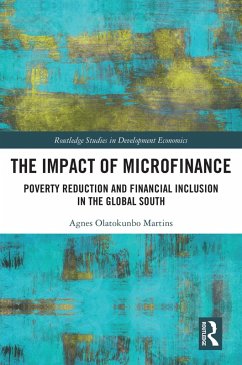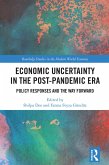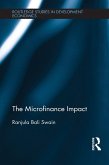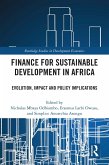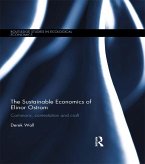It highlights the necessity to rigorously address issues such as mission drift, macroeconomic stability, governance, regulatory frameworks, and enforcement. It provides a contemporary and comprehensive overview of microfinance implementation in developing countries, enabling comparative analysis of regulatory and supervisory practices, and evaluates theoretical frameworks linking microfinance to economic growth and poverty reduction, utilising concepts of financial intermediation, resource allocation, and financial development. The book empirically tests the causal relationships between microfinance, economic growth, and poverty reduction using a balanced panel dataset of macroeconomic and microeconomic indicators and identifies and analyses the mechanisms through which microfinance impacts economic welfare and poverty reduction. As well as asking whether microfinance can alleviate multidimensional poverty in favourable macroeconomic, political, and business environments in developing countries, it also questions whether it enhances living standards, health, and education. It examines how economic shocks impact vulnerable populations and microfinance institutions and looks at the factors that contribute to the success of microfinance in countries where it is well-established. Further, it offers policy implications and recommendations to enhance the effectiveness of microfinance and address key challenges.
This book targets a broad spectrum of readers involved in microfinance, financial inclusion, and development economics, including researchers, academics and students as well as policymakers and government officials.
Dieser Download kann aus rechtlichen Gründen nur mit Rechnungsadresse in A, B, BG, CY, CZ, D, DK, EW, E, FIN, F, GR, HR, H, IRL, I, LT, L, LR, M, NL, PL, P, R, S, SLO, SK ausgeliefert werden.

